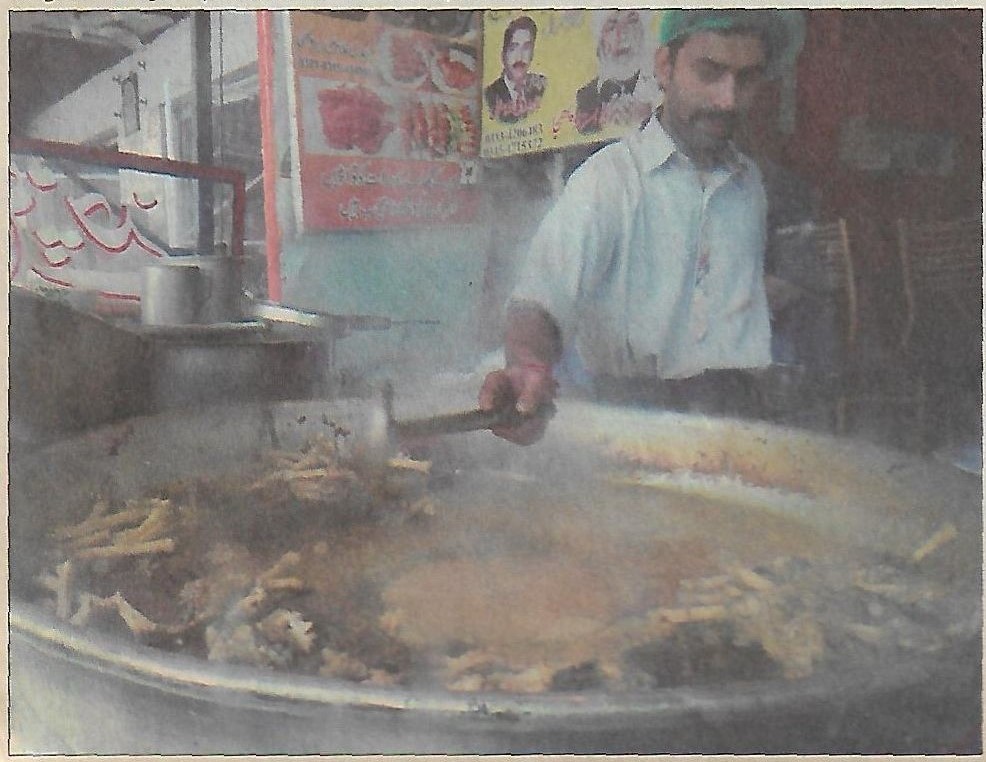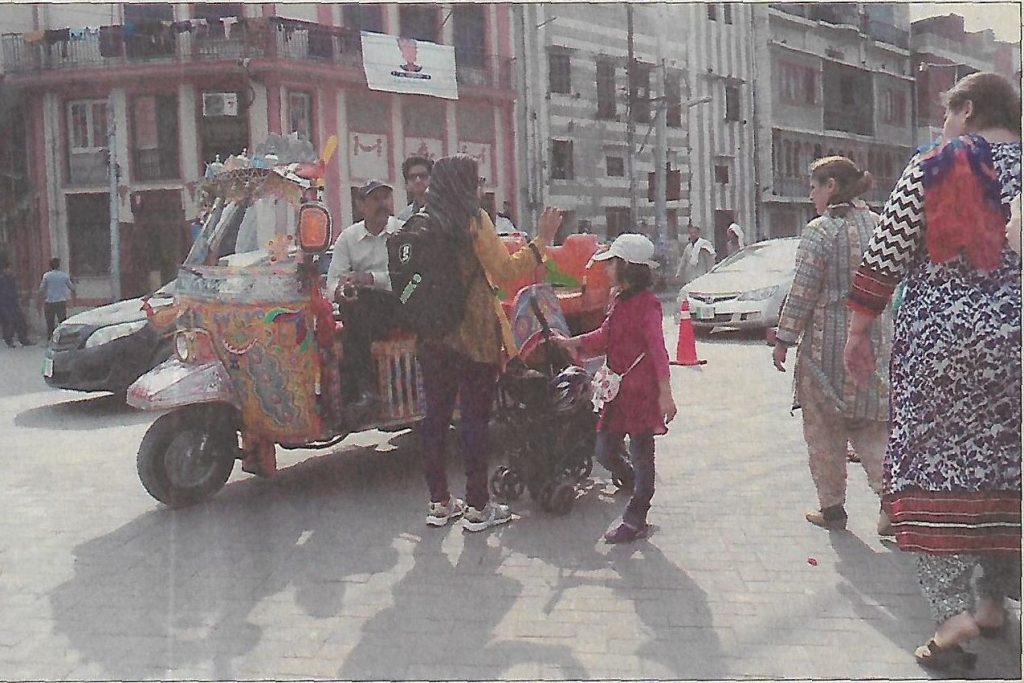BUSINESS RECORDER
March 19, 2016
Sadiq Jafri
Lahore is not just an aggregate of roads, building structures and inhabitants. The city has a peculiar culture that has survived monumental upheavals and alterations of centuries. Once one enters the walled city through any of its 13 gates, one meets the Lahori society largely unscathed by the challenges and vagaries of time. All around, one hears the familiar carefree, hearty and resounding laughter and purely humorous remarks among friends that are special characteristics of the walled city since time unknown.
The hospitality among the residents of ancient Lahore is still as young and powerful as the city is itself. The supportive and friendly nature of Lahoris still survives. The population of the walled city has now grown to two million but still everyone knows almost everyone and they are prompt to make room for more arrivals.

Nobody would frown over a stranger asking for guidance to an odd address. A kind-faced elder would be there to lovingly discourage a vagabond youngster or two. A complaining and yelling customer would receive very polite response and ready compensation from the shopkeeper. Anyone hurt in a road accident would be supported right away to the nearest hospital. Above all, the collective conscience of the society still lives on. Lahorites as a whole would go all out to suit all fellow citizens at an equal scale, and would raise their voice against any unjust action from anyone, strong or weak.
In a village-like fashion, a newcomer passing along a narrow lane more than once is bound to meet a friendly-looking man who would politely offer his keen help. Groups of friends roam around hand in hand or sit closely on the pavements enjoying their giant-sized glasses of thick lassi. Roadside cafes are full of unworried time-killers of all ages eating halwa puri and naan paya, discussing art, literature, politics and every other subject under the sun.

Eating as much quantity as possible of good food is still the hallmark of life here. All the food items which Lahore is famous for are still available with the only exception that hot spices of the recent past are almost missing from Dahi Barray, Gol Gappay, Haleem or Pathoray channay, unless you especially ask for “no sweet chatni but double masala.”
Like always, streets are packed beyond capacity, shops are spilling over with latest merchandise, and, at the very few wide streets, vehicles move bumper to bumper without impatient drivers honking the horns frantically. In the thick of the walled city, surrounded by 4-storey houses on all sides, the narrowest lanes wide enough for one odd person to walk along are also intact, from where one can only catch a thin glimpse of the sky. The entire ambiance is easy-going, very friendly and trouble-free like always.

All the famous markets are bustling with buyers. Inside Bhati Gate one finds all kinds of delicious food. Akbari Mandi has wholesale marble shops. Brandreth Road is loaded with shops of auto parts, hardware and machine tools. Wholesale shoe sellers are found inside Masti Gate. Dry fruits, kites and fireworks are sold inside Mochi Gate. The famous Mochi Bagh is also inside Mochi Gate where most of known political leaders have delivered their speeches. One of the biggest wholesale and commercial markets of cosmetics, leather goods, toys, kitchen items and garments is located inside Shah Aalmi Gate. The famous Soha Bazar having all the world class silversmiths and goldsmiths inside Rang Mahal.
Over past decades, Lahore has lost many of its gifted sons who rose to fame from the roadside cafes, but the quality of discussion is still at the same level where they left it. Lahore has adjusted to all the restlessness and flooding ambitions of the current hi-tech age without losing its original expression. Old structures and mansions on the Mall have been revived in their primary attribute where hanging of huge sign boards is not allowed. Under a policy to contain the heavy load of visitors, new companies seldom get permission to open their offices on the Mall.
Pak tea House near Anar Kali Bazaar, starting 1932, has been reincarnated at its old place, and is full of visitors. On the walls of the Tea House, one finds framed portraits of the celebrated poets, writers, authors and intellectuals who frequented this place over the past decades. They include Saadat Hasan Manto, Faiz Ahmad Faiz, Agha Shorish Kashmiri, Ahmed Rahi, Meera Ji, Ibne Insha, Ahmed Nadeem Qasimi, Zaheer Kashmiri, Ahmed Faraz, Munir Niazi, Habib Jalib, Ahmed Bashir, Ashfaq Ahmed, Kamal Ahmed Rizvi, Nasir Kazmi and Intezar Hussain.
Many developments have lately taken place to improve the inside city conditions. The Government of Punjab established an autonomous body, Walled City of Lahore Authority, in 2012, for the preservation, rehabilitation and upgrading of the walled city. The pilot project taken up by the WCLA is to restore and renovate a 1.6-kilometer-long route traditionally called “Shahi Guzargah” from Delhi Gate to Masti Gate. The trail passes through many landmark monuments. For the first time, the faces of Shahi Hammam and Wazir Khan Mosque have been exposed by permanently removing dozens of shops that previously blocked view of the facade.
Many tourist attractions have been added. A Tonga ride has three different routes starting Delhi Gate, Bhati Gate and Circular Road. An exclusively designed “tourist rickshaw” is currently available for a guided tour across inside city. It covers the longest route starting Delhi Gate and passing Akbari Mandi, Shahi Hammam, Gali Surjan Singh, Haveli Mian Sultan, Haveli Baij Nath, Masjid Wazir Khan, Chowk Kotwali, Sonehri Masjid, Kasera Bazar, Tomb of Malik Ayaz, Heera Mandi Chowk, Waan Market and Musical Instrument Bazar ending up at the Food Street adjacent to Lahore Fort.

The Food Street at Fort Roacl has been developed by setting up restaurants inside about a dozen renovated old havelis keeping much of their original architecture and fixture alive. A surprising addition, though, is the installation of lifts inside-these havelis which zoom the visitors up to the rooftops at fourth or sixth floor. Here, one can see all around the old city plus the Badshahi Masjid and Lahore Fort from the top angle. The Royal Fort has also been renovated by the WCLA and its previously closed portions like Sheesh Mahal have been opened to tourists.
Data Darbar, the tomb of Sufi saint Hazrat Syed Abul Hasan bin Usman bin Ali Al-Hajweri, outside Bhati Gate, has been widened and it now provides more space to hundreds of thousands of devotees visiting the place round the clock round the year. It also offers free food and sleeping place to the needy and the shelter-less.
Civic conditions inside walled city are improving. Plans are underway to broaden the narrow lanes without having to demolish lots of old structures. The task of cleaning and lifting garbage to an eyesore-free level has recently been accomplished. Enhancing water supply to meet the current multiplied needs through the old and rusty pipelines is a tedious task. Electricity supply cables hanging all over and striking against each other quite often still need to be safely organized and maintained so as to prevent the risks of short-circuiting and breakdowns. In mid-January this year, a 4-storey house caught fire because of short circuit in which six members of a family were burnt alive because no help could reach them in time through the congested and narrow lanes of Jhanda Bazar inside Lahori Gate.
Adjacent to the walled city, the new Azadi Chowk signal free junction at Ravi Road facing Minar-e-Pakistan, is a marvelous addition to the whole scenario. Comprising of a flyover and an elevated roundabout, with three up-ramps and three down-ramps, one of which starts from Taxali Gate, the project was completed in a record time of 165 days. The interchange is around three kilometers long and it furnishes the old city of Lahore a very hi-fi look.
